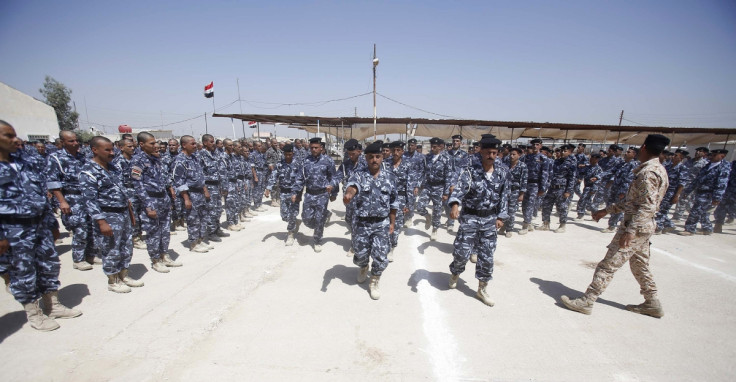Iraq Crisis: What Would it Take for Britain to Intervene?

The emergence of Tony Blair into the media spotlight last week prompted a fierce debate about, among other things, whether the UK should intervene in Iraq.
With a coalition of Sunni extremists, led by the breathakingly brutal Isis (Islamic State of Iraq and the Levant,) seizing territory across Iraq's northern region, the United States and its old ally Britain are frantically working on a plan of action.
The former British Prime Minister's message was clear: the ongoing trouble in Iraq will someday present a threat to British national security and inaction would endanger the West, he said.
In an essay posted on his website, he picked a fight with "Islamist extremism", saying the West is involved in a generation-long global war against the ideology. Britain, he argued, should intervene in Iraq accordingly.
However familiar Blair's argument, Britain's position on Iraq is no longer dictated by what the former Prime Minister says.
Firstly, it is important to note that the Britain will be led by the United States on foreign policy decisions.
With Barack Obama's growing reputation for isolationism, it is easy to forget that the US President has made foreign policy plays based on the kinds of arguments espoused by Mr Blair in recent days.
In Yemen, Somalia and Pakistan, Obama has signed off on hundreds of drone strikes and special-forces raids against targets that the administration believes posed a threat to the US's national security. When asked about the possibility of using drones against Sunni militants in Iraq on Monday, US Secretary of State John Kerry said that every option was being vetted.
While the White House has buffed up its naval and air force presence in the region over recent days, as it mulls the prospect of an aerial campaign, President Barack Obama hastily ruled out the prospect of a large-scale military deployment on the ground.
British and American leaders are certainly jittery about the advance of the ultra-violent Isis but any decision to intervene will be determined by events on the ground in Iraq.
The coalition of Sunni extremists, cobbled together and led by Isis, has lost the momentum that saw it sweep through Mosul, Tikrit and Baiji in a matter of days.
As the group advanced towards the Iraqi capital Baghdad, it encountered better equipped forces with stronger ties to the central government. Unlike the troops in Mosul, these security forces did not drop their weapons and flee.
The advancing militants will find it much harder to take Baghdad than Mosul, according to Jamie Ingram, an expert on Iraq at IHS.
"The army and security forces around Baghdad are much more competent and organised than the guys that were up in Nineveh province, Tikrit and Salehuddin," he says. "There's also the presence of the Shia militias that are going to form the core components of this volunteer army that Maliki's been calling for now.
"In terms of the army guys fleeing, part of that is down to the fact that they don't have any particular loyalty to that area. They were viewed, and they felt that they were viewed as an occupying force. The tribes and the local residents certainly don't agree with Isis themselves and have no allegiance to them but also they oppose the government and the army is being controlled by Maliki himself – that link couldn't be broken effectively and there's a lot of ill will towards the army."
Iraq's Prime Minister Nouri al-Maliki must accept some responsibility for this. In a bid to consolidate his power, he actively promoted Shia personnel through the army ranks to senior positions, giving the national force a distinctly sectarian dimension.
While this partially led to troops deserting in Sunni-aligned northern cities like Mosul, it is much less likely to occur in the more Shia regions in the south of the country, where a lot of Western oil majors have invested in oil facilities.
"The vast majority of Iraq's oil infrastructure is in the south," says Tom Pugh, a Commodities Economist at Capital Economics. The south has seen "barely any trouble, so I think the current levels of production seem relatively safe", he added.
Indeed, of the 3.5 million barrels of oil that Iraq was producing before Isis seized Mosul, 2.8m were exported through southern export terminals, while the rest was consumed domestically.
The security of this oil production infrastructure will be a critical factor to any decision to intervene on the part of the West.
If Baghdad were to fall to the militants, which remains a remote possibility at the moment, then Isis would find itself in control of territory much closer to Western oil interests. The prospect of Sunni extremists seizing BP or Exxon Mobil oil facilities would no doubt increase the chances of Western powers intervening.
However, if Iraqi forces loyal to the central government are able to defend Baghdad and the oil infrastructure south of the capital, the prospect of a long-term stalemate looms.
© Copyright IBTimes 2025. All rights reserved.






















